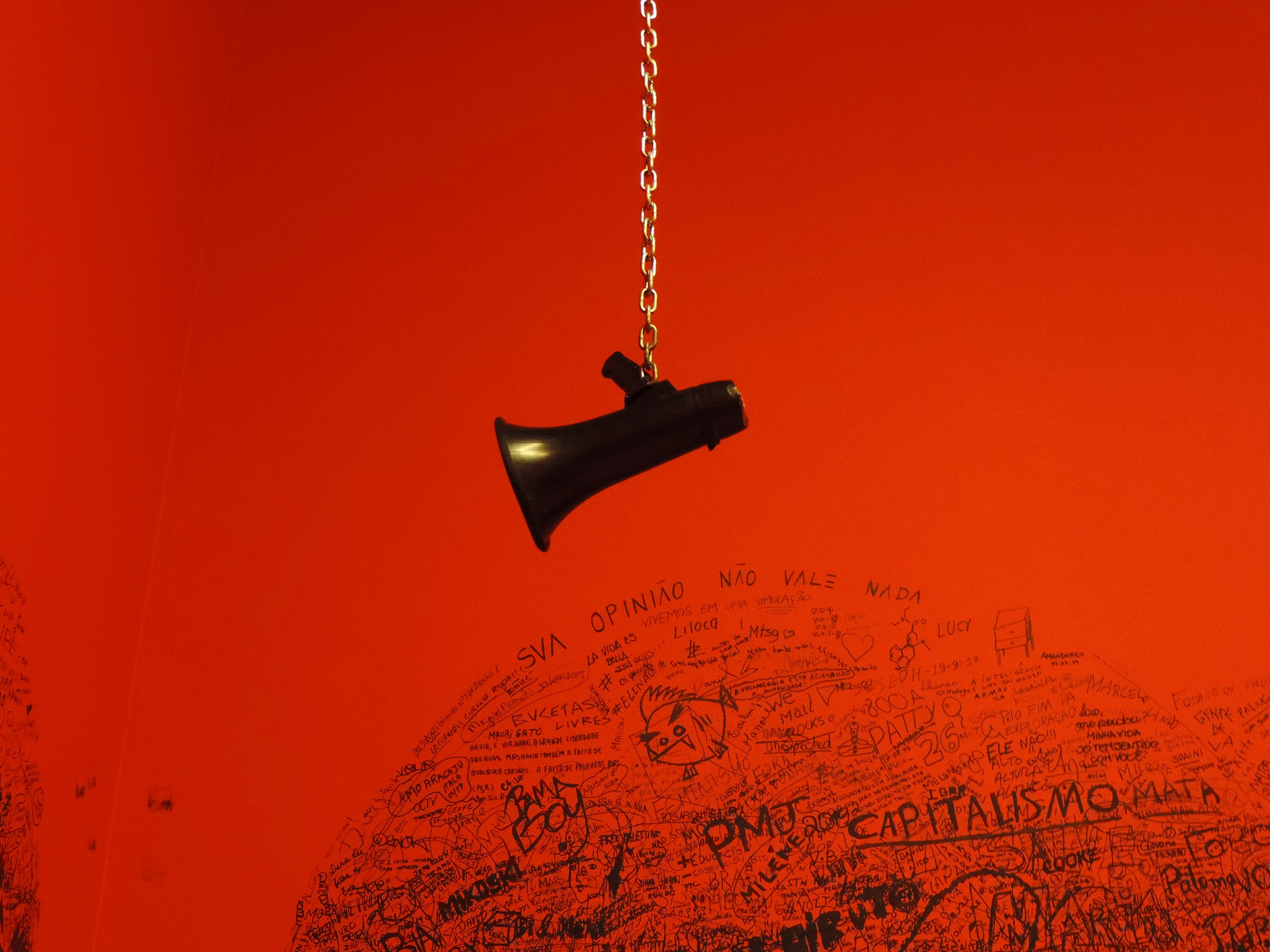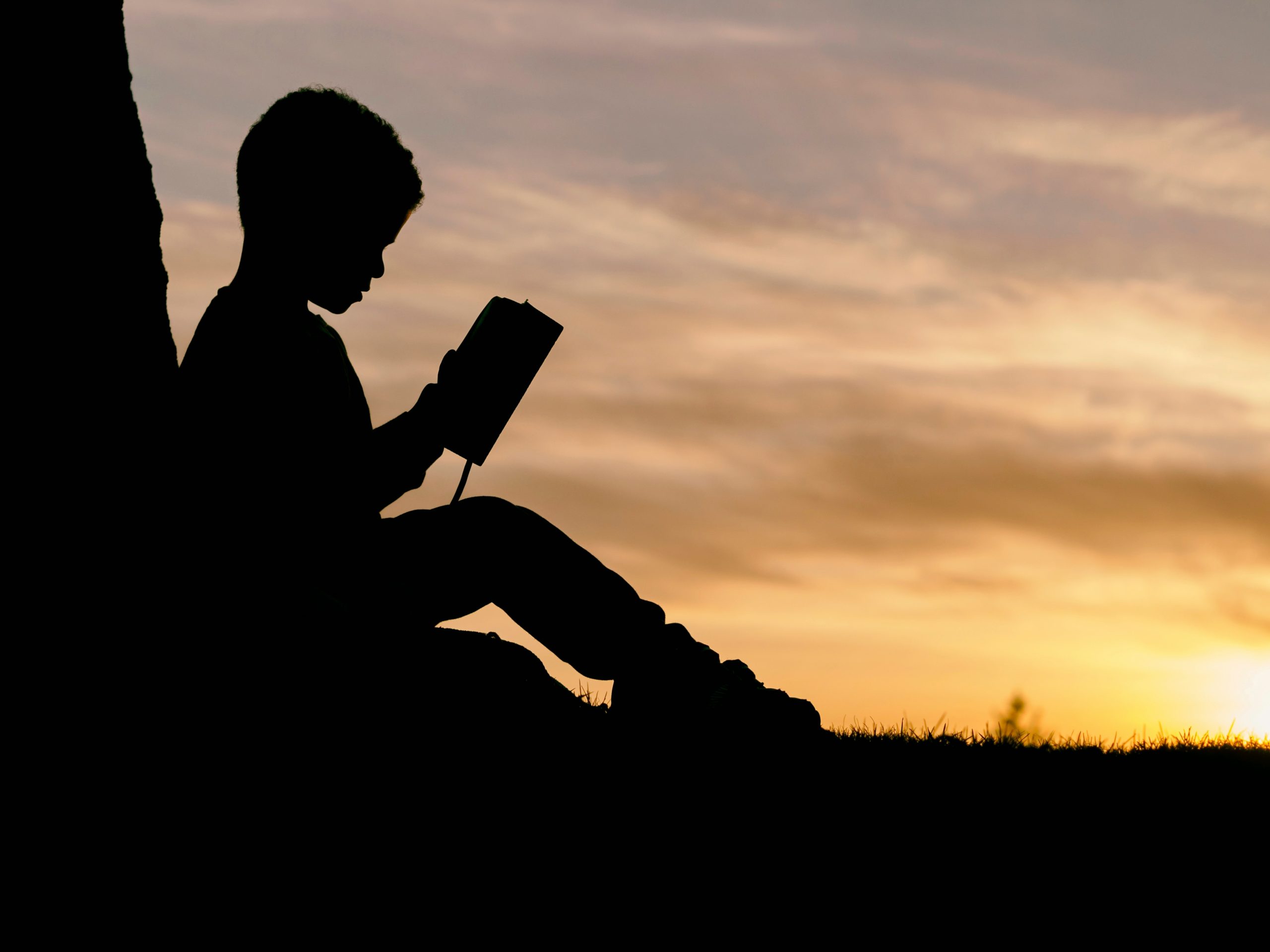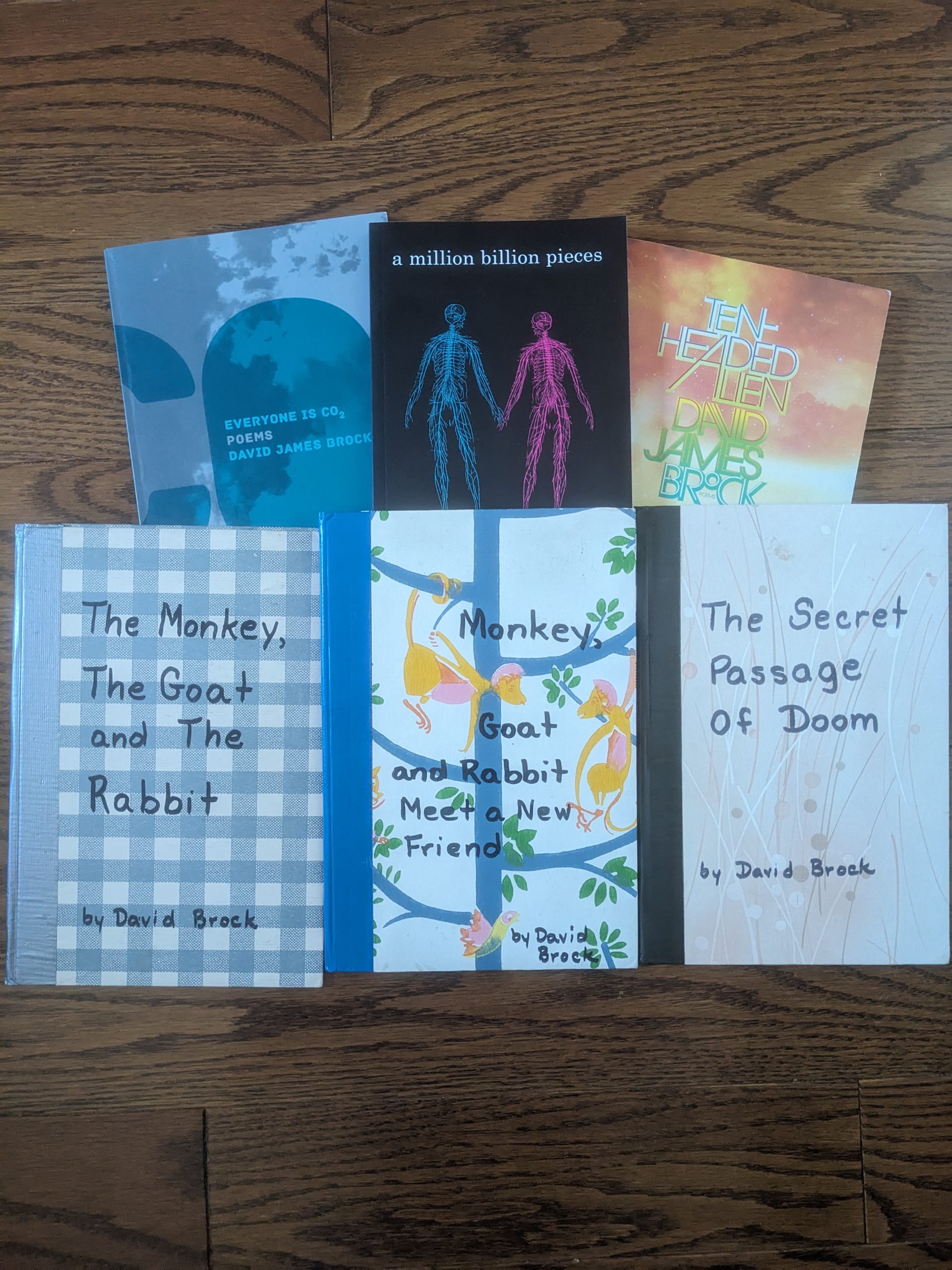
3 Simple Ways to Find Your Voice Without Losing Your Mind
Voice is one of those elusive writing concepts that very few people can define, yet somehow most people can recognize it when they see it. Some describe it as a uniquely stylized form of rhythm and syntax. Others describe it as a demonstration of your life philosophy, or a way of being in the world.
You don’t have to say it. I’ll say it for you: none of that is helpful.
The cruel irony for writers struggling to find their voice is that the more time you spend obsessing over the best way to define, develop, and demonstrate it, the less likely you’ll be successful.
This is the part where I tell you to relax. Voice is simpler than you think—it’s you on the page.
That didn’t help! That doesn’t make it easy!
I never said it was easy; I said it was simple. There are three simple ways to hone your voice without ever having to think about voice again:
- Read everything
- Write a lot
- Get to know yourself
Read Everything
I know someone somewhere let out a big groan when I said this. Sorry to that person, but your day’s about to get worse. It’s a well-known consensus that writing well requires you to read. A lot.
And it’s not just me saying that. Stephen King said so. Austin Kleon said so. Annie Proulx said so. Cormac McCarthy said so. Terry Pratchett said so. William Faulkner said so. Ray Bradbury said so. J.D. Salinger said so. I could literally do this all day, but I think you get my point.
I’m going to ruin your day further. The only people who think you can write well without reading widely are people who don’t write well. I’m not done yet. A writer believing they can write without reading is the equivalent of a doctor believing they can perform surgery without watching someone do it first. Any experienced writer looking at your work can tell you don’t read as easily as an experienced doctor feeling your lymph nodes can tell your body is fighting infection.
Good writing requires only that you can identify writing that moves you.
Now that I’ve thoroughly pissed half of you off, it’s time to piss off the other half: it doesn’t matter what you read. That’s a controversial statement, but I stand by it. I don’t think good writing requires you to read the classics, however you define that. You don’t have to read Ernest Hemingway, or Virginia Woolf, or Ayn Rand. If Adventures of Huckleberry Finn makes you want to scratch your eyes out, put it down. Good writing requires only that you can identify writing that moves you. If you only have interest in short stories from anthologies, read them! If Wattpad fan fictions are your guilty pleasure, hop to it! If you’re the type to read demon smut under a blanket with a flashlight, go for it!
In fact, let’s take it one step further. Read the ads on the subway on your way to work. Read the ingredients on the cereal boxes when you’re standing in line at the grocery store. Read the signs nailed to the lampposts when you walk through the park. Read fortune cookie quips. Read bubble gum wrapper jokes. Read your horoscope in your local newspaper then read the horoscopes for all the other signs. Read those useless update emails you get from your work or school that no one ever reads.
Need more? Let’s do it. Read street signs; storefronts; the announcement board at the library; text messages over the shoulder of the person sitting in front of you on the bus. Read personalized license plates; bumper stickers; lawn signs; spam messages before you delete them; junk mail before you throw them out. Read the fine print on your concert tickets, on your medication labels, on your new flat iron. Read the warning on your sunscreen, or your bug spray, or your bubble bath bottle. Read the entire menu, not just the section you want to order from. Hell, if you only have the mental bandwidth to watch one twenty-minute Netflix comedy before bed, turn the captions on and read them bitches!
Then once you get into the habit of reading every word your eyeballs touch, start noticing your reactions to them. If an ad slogan makes you laugh, take a minute to question why. If a movie synopsis made you think, nope, not that one, try to identify what turned you off. If you get to a point where you decide to DNF (did not finish) a book, before you put it down, ask yourself what made you hate it.
Meredith’s “pick me, choose me, love me” speech in Grey’s Anatomy made me kick my feet and giggle the first time I watched it. On the second round, the same speech made me cringe. Every single time I hear Papa Pope say, “I am the hell and the high water,” a shiver runs down my spine. All of these reactions are valuable information I added to my toolbox. No matter how slight, if something you read made you react, it’s valuable information. So read everything you can, read everything you have time to read, read everything you see, and pay attention to your responses to other people’s words.
Write a Lot
Once you start reading everything, the next step is to write. And listen, don’t set yourself up for failure on this step. Your writing is gonna suck, and probably for a long time. The very first story I wrote was an eighty-seven-page handwritten novella that I was really proud of when I wrote it back in the 8th grade. I have no idea where that thing is now, and I’m glad for that.
Because it sucked.
That’s just how it works. More importantly, every time you write something that sucks, you’re teaching yourself what not to do. That’s useful information for your toolbox.
Now here’s where it gets fun. The more that you read and the more you notice your responses to the things you read, the more material you’ll have to latch onto when you write. When you want to write something that devastates your readers, you’ll remember something you read that devastated you and you’ll try to emulate it. You can think of it as having all your favourite writers and storytellers peeking over your shoulder while you practice.
If I wanted my protagonist to tell her boyfriend about himself in a gut-wrenching monologue, I asked Shonda Rhimes to help me write it. When I needed my character to fail at something in a way that was both embarrassing and endearing, I tapped Issa Rae on the shoulder. For the scenes where a no-nonsense, probably supernatural heroine kicks the villain’s ass and looks sexy doing it, I brought it all the way back to my girl, Jennifer Estep.
Your writing is gonna suck for a while.
You’ll come up with a lot of awesome stories. The bad news is that a lot of them, at this stage, will be plagiarized. In 2017, I wrote the first draft of my novel about a fledgling vampire who learns about the ancient vampire clan and gets trapped there. It was basically The Hunger Games if Katniss was born in the 1800s and drank blood. I once wrote a TV script about a spy who saves her partner after he’s beaten to near death. Then a week later, while watching Scandal for the dozenth time, my stomach bottomed out when the scene I’d just written played out in front of me beat for beat. Like, almost exactly.
Remember what I said earlier: your writing is gonna suck for a while. If you’re just starting out and you write this amazing, elaborate, beautiful thing in one draft, don’t pat yourself on the back just yet. Do a few Googles first. Chances are, you’re ripping someone off. If you’re not, that’s great! But if you are, don’t stress; that’s part of the process too.
Learn Who You Are
After you’ve gotten good at reading everything and writing a lot, your next step is to learn who you are. Don’t scoff. I’m not proposing you jump down any philosophical rabbit holes debating what it means to be. Nor am I suggesting that you need to become a psychology expert, though as a psychology major, I can attest that having some knowledge in the field helps.
The basic principle here is the same as before: notice your responses to things. Observe who you like talking to and who you don’t. Spot the differences that make you describe someone as cute, hot, or creepy. Pay attention to how you feel when you’re having fun and the things you tell yourself when you feel embarrassed. Identify what stops a good day in its tracks and what makes a bad day end good. Make note of the factors that determine if your relationship with someone will be romantic or platonic, shallow or deep. What makes you say no to dessert, and what makes you indulge? Does it depend on who you’re with? Whether or not you went to the gym yet? Does it depend on how your day’s going? Or is it something else entirely? Pay attention.
We spend our entire lives with ourselves, so it’s easy to mistake instinctive behaviour and subconscious habits for self-awareness—they aren’t. Take a step back, go “big picture” and practice being a third-party observer of you. Just please don’t waste your time judging yourself for the things you observe. Save that for when you talk to your therapist—you’ve got writing to do.
Just make a note of what you notice and move on with your day. That's all you have to do.
If you’re looking for some extra credit, I gotchu. After you get good at noticing yourself, start noticing other people. Observe strangers in the park; eavesdrop on their conversations if you can do it without being creepy. Watch your parents when they don’t know you’re hanging around, run experiments on your little brother and see how long it takes him to tell you to get lost. Pay attention when someone misses your call. Do they have a personalized voicemail greeting, or did they let the robot take care of it? The energy at a party will vary depending on if everyone is friends with everyone, or if you’re the central node; what’s the difference? When you’re in a room full of people, make note of how the different personalities interact with each other. Who’s the loudest, are they saying anything important? Who’s the quietest, are they zoning out, or following the conversation?
Look, I know this may sound overwhelming, but I’m not asking you to keep journals of raw data—though I absolutely would recommend you try. The bare minimum you have to do is make a mental note of what you notice and move on with your day. That’s it.
Now this is the part where we really start cooking with gas. Assuming you’re still reading everything and writing a lot at this stage, you’ll notice a shift in your process. All the things you observe about yourself and those around you get added to that big ol’ toolbox in your brain, which means even more material to work with.
I don’t know when it happened, and I could not tell you what triggered the shift if I tried. All I know is that after a while, I reached for my writing heroes in more indirect ways. When I wanted one of my characters to devastate another, I stopped asking Shonda for help. Instead, I thought about what would devastate me to get the juices flowing. Then I snatched a line or two from some of Shonda’s most B.S.-intolerant characters and coated them in those juices. Then I chopped up some wordplay from the last book I read, seasoned it with overheard conversations from strangers in the street, and added a dash of embarrassment from something that happened when I was nine. While that simmered, I imagined the most hurtful thing someone could say to me, mixed in some throwaway thoughts from a journal entry when I was sixteen, along with a couple of clips from a news segment that made me feel anxious the week before. Toss it all in the pot, give it a good stir, then slap it on a plate, piping hot: an original scene, wholly and authentically mine.
This is why you don’t need to freak out if you notice plagiarism in your early work (as long as you’re not trying to publish it). When you spend days, weeks, months, or even years trying to write like Stephen King, after a certain point, without you noticing, you’ll stop sounding like a knock-off version of Stephen King and start sounding like an authentic version of you. Don’t ask me to explain the magic, because I can’t. I can only confirm from experience that it works.
Conclusion
I’m going to pause here to remind you that this article is about finding your voice. If you forgot, don’t worry. That was intentional. Because you can’t find your voice by looking for it. You find your voice by experiencing literature and the world, and noticing yourself as you do.
You’ve found your voice when you write pretty much the same way you talk. You’ve found your voice when people say they see your personality in your work. You’ve found your voice when you stop thinking about your voice; when you finally feel comfortable existing naturally with your writing the same way you exist naturally wherever you feel safe.
You do that by reading everything, writing a lot, and noticing yourself and the space you take up in the world. The more you observe your responses to your experiences, the easier it becomes to identify when you’re showing up authentically in your writing. And the moment you find a way to show up authentically, well, there you have it: your voice.
Brittany is a Creative Writing MFA Candidate at the University of Guelph. Her immediate writing focus is on developing characters who confront difficult, often buried emotions. As far as she's concerned, if she's not having an existential crisis, she's not living. When she isn't writing, she firmly embraces chaotic shenanigans, exploring Toronto in search of her next favourite meal or view of Lake Ontario.





Leave a Reply